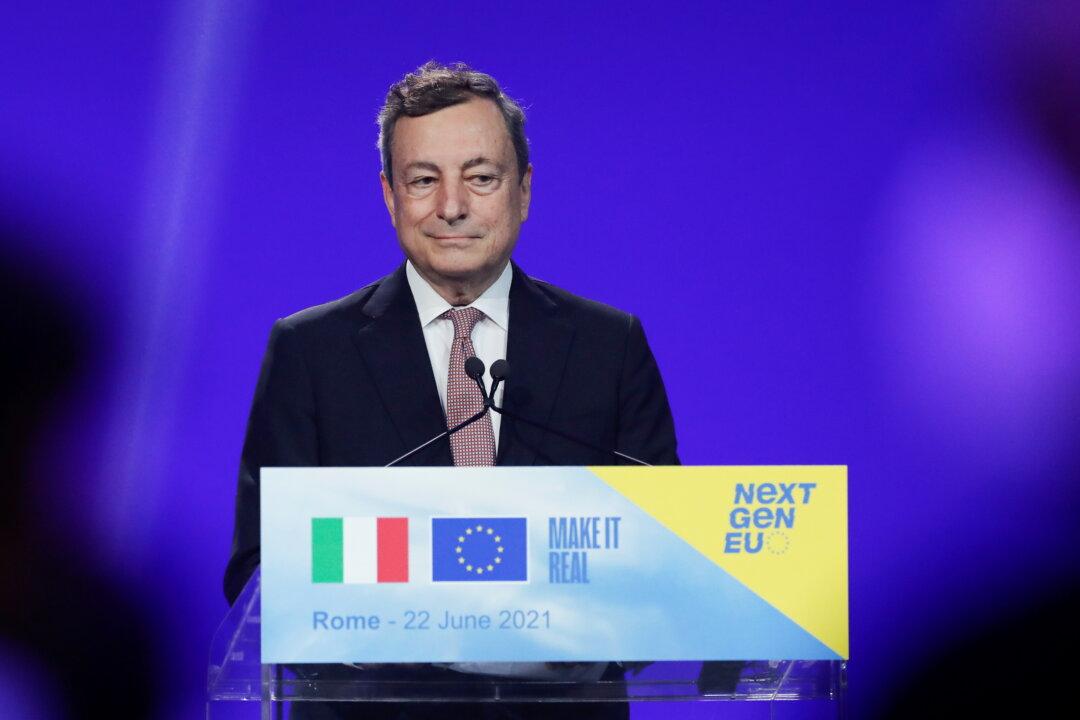Italian Prime Minister Mario Draghi said China’s anti-COVID-19 vaccine did not fully work and questioned whether Russia’s Sputnik jab would ever get approval from European regulators.
“The Chinese vaccine ... has shown itself not to be adequate. You can see that from Chile’s experience of tackling the epidemic,” Draghi told reporters at the end of a European Union summit.





